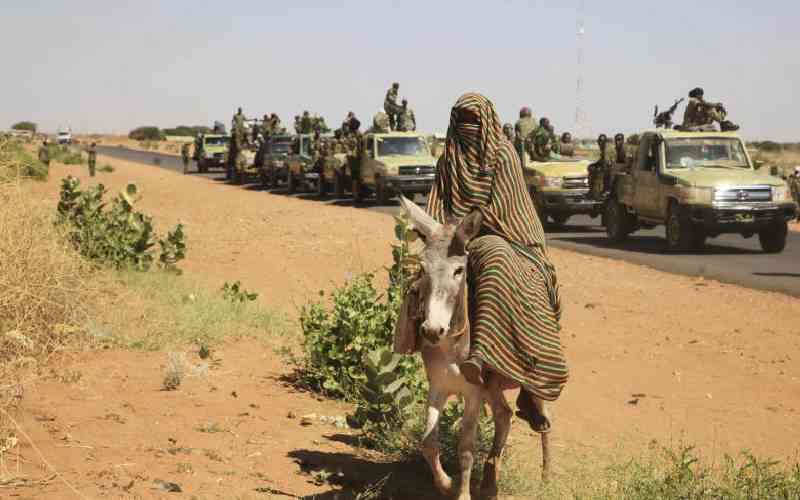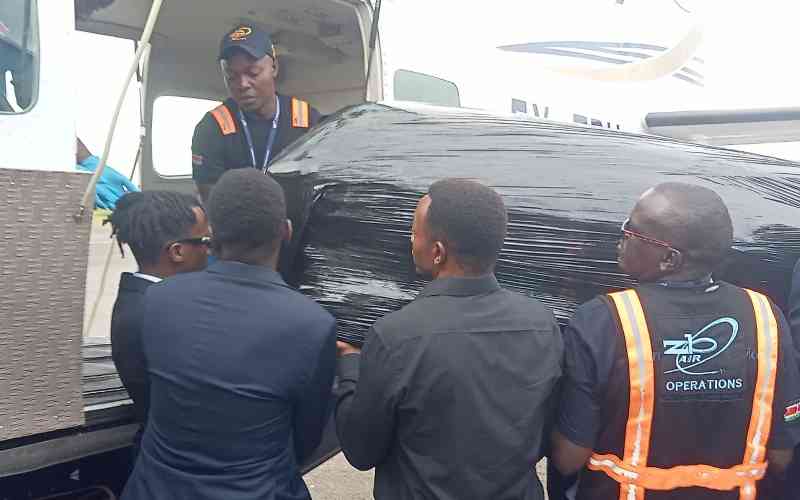UNITED NATIONS: Amid worsening violence in Sudan's Darfur region, a frustrated International Criminal Court prosecutor pleaded on Monday for the United Nations Security Council to take action to ensure justice "for the long-suffering victims of atrocity crimes."
"It is long overdue for you to heed the cries of the victims of rape and sexual abuse, torture, mass displacement and other inhumane suffering Darfurians continue to endure," said ICC Prosecutor Fatou Bensouda.
The United States, Britain and France have said the suffering in Darfur was at its worst level in a decade.
"Innocent civilians continue to bear the brunt of insecurity and instability, in particular as a result of what appears to be an ongoing government campaign to target them," Bensouda said.
"The people alleged to be most responsible for these ongoing atrocities are the same people against whom warrants of arrest have already been issued," she said.
The Hague-based court issued an arrest warrant for Sudan's President Omar Hassan al-Bashir, who is accused of crimes including alleged genocide in the country's western Darfur province, in March 2009. Yet Bashir, who rejects the court's authority, has traveled within Africa and not been arrested.
The ICC's Bensouda said the court had made ten referrals to the Security Council for non-compliance, including Sudan, Chad, Kenya, Djibouti, Malawi and Democratic Republic of Congo, but the 15-member council has not responded to any of the referrals.
Sudanese Defense Minister Abdel Raheem Muhammad Hussein, former Interior Minister Ahmed Haroun and Janjaweed militia leader Ali Kushayb have also been charged by the court but remain at large.
UN Security Council action is seen as unlikely because veto-wielding member China traditionally acts as Khartoum's protector. China abstained on the council vote in 2005 that authorized the ICC to investigate Darfur, and has said it has "serious reservations" about the charges against Bashir.
Earlier this month, Bashir traveled to South Africa for an African Union summit. A Pretoria court had issued an order banning him from leaving the country until the end of a hearing on whether he should be detained under a global arrest warrant.
But South Africa allowed Bashir to leave the country though its court later said he should have been arrested to face genocide charges at the ICC.
Sudan's Deputy U.N. Ambassador Hassan Hamid Hassan told the Security Council: "The ICC has become a mere device to target African leaders and not others."
 The Standard Group Plc is a
multi-media organization with investments in media platforms spanning newspaper
print operations, television, radio broadcasting, digital and online services. The
Standard Group is recognized as a leading multi-media house in Kenya with a key
influence in matters of national and international interest.
The Standard Group Plc is a
multi-media organization with investments in media platforms spanning newspaper
print operations, television, radio broadcasting, digital and online services. The
Standard Group is recognized as a leading multi-media house in Kenya with a key
influence in matters of national and international interest.
 The Standard Group Plc is a
multi-media organization with investments in media platforms spanning newspaper
print operations, television, radio broadcasting, digital and online services. The
Standard Group is recognized as a leading multi-media house in Kenya with a key
influence in matters of national and international interest.
The Standard Group Plc is a
multi-media organization with investments in media platforms spanning newspaper
print operations, television, radio broadcasting, digital and online services. The
Standard Group is recognized as a leading multi-media house in Kenya with a key
influence in matters of national and international interest.






